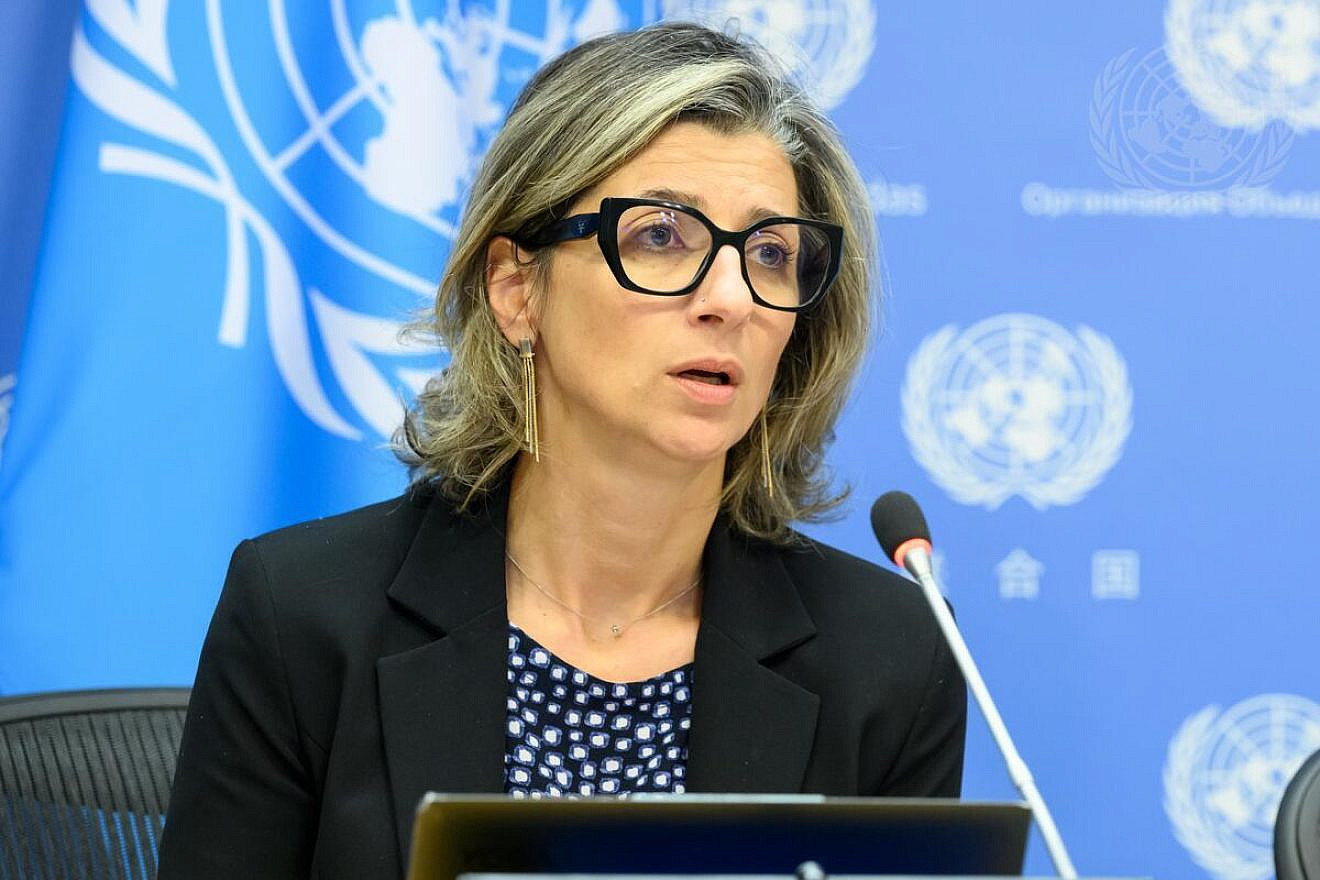Francesca Albanese, the United Nations special rapporteur for the Palestinians who has a long history of denouncing Israel, glossed over Iran’s attack against the Jewish state on Saturday in a social media post the next day.
“I truly hope Iran’s military response to Israel’s bombing of the Iranian embassy in Syria doesn’t escalate into a full blown-war,” Albanese wrote on Sunday. “At the same time, I urge everyone to remain committed to stop Israel’s genocide in Gaza and its brutal violence in the West Bank. This is the only path to peace in the region and beyond.”
Albanese pinned the post, in which she referred to an April 1 strike on an Iranian compound in Syria, to the top of her account on X. Tehran and others have accused Israel of carrying out the attack, which killed seven members of the Iranian Revolutionary Guard Corps terror group, including a high-ranking general. The Jewish state has not publicly taken responsibility.
Israeli Arabs and Palestinian Authority citizens were also in danger on Saturday when Iran fired hundreds of missiles and drones, and a seven-year-old Bedouin Arab girl, who lives in the southern Negev desert, was seriously injured.
“Calling it an Iranian reaction to Israeli provocation is absurd and ignorant. Reframing it around false claims of Israeli genocide is malicious blood libeling,” wrote David May, a research analyst at the Foundation for Defense of Democracies, in response to the U.N. officials post. “Iran’s attack should remind people the Gaza war is one front in Iran’s broader attempt to destroy Israel.”
About an hour prior to Albanese’s post, Hillel Neuer, executive director of United Nations Watch, asked if the cat had got her tongue, nearly 24 hours after the attack began.
“The U.N.’s Hamas proxy Francesca Albanese, who usually tweets every five minutes about violations of international law, has suddenly gone radio silent,” he wrote. “I wonder why.”
Albanese has regularly accused Israel of carrying out ethnic cleansing in 1948 and 1967, when Arab forces lost wars of annihilation against Israel. She refers to Israel’s survival during and after those wars as an ongoing “Nakba,” Arabic for “catastrophe.”


























